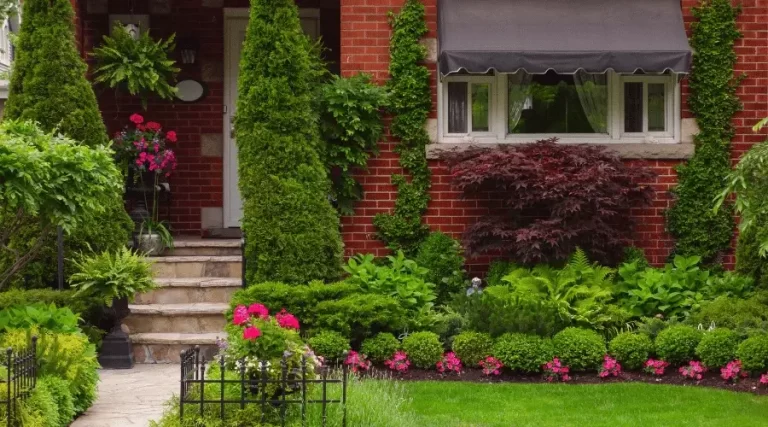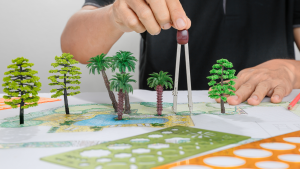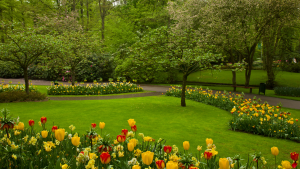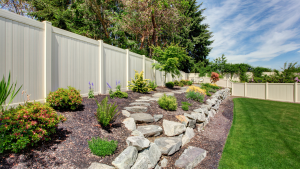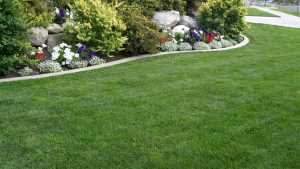Making a garden that’s good for the Earth is not just popular – it’s something we should do. A big part of a garden that helps the planet is using eco-friendly plants. In this article, we’ll talk about what makes a plant eco-friendly and give you 10 easy tips to make your outdoor space eco-friendly. Considering a landscaping update? Baton Rouge Landscape Pros is here to help – contact us for a consultation
What is an Eco-Friendly Plant?
Eco-friendly plants are ones that grow well on their own without needing a lot of water, fertilizers, or pesticides. These plants are tough and strong because they’ve gotten used to the local conditions. They’re essential because they help different kinds of plants and animals thrive in the area.
Why is It Important for Your Plants to Be Eco-Friendly?
Picking eco-friendly plants is a big part of gardening in a way that helps the Earth. You usually don’t need lots of chemicals, so you save resources and keep the environment healthier than regular gardening. Having a garden with eco-friendly plants is like giving nature a friendly hug.
How Can I Make My Plants Eco-Friendly?
- Choose Native Plants: Choose plants that are from your area because they are used to the weather, soil, and animals around there.
- Water Wisely: water your plants like drip irrigation, and save rainwater to use less water and create less waste.
- Compost: Make compost from kitchen scraps and yard waste to make the soil better for plants without using fake fertilizers.
- Natural Pest Control: Get friendly bugs like ladybugs and spiders to keep away pests, so you don’t have to use as many chemical sprays.
- Mulch: Use mulch to keep the soil moist, stop weeds, and control soil temperature, cutting down on excessive watering.
- Use Organic Fertilizers: Choose organic fertilizers to help your plants grow strong without putting bad chemicals in the environment.
- Rotate Crops: Switch up the plants you grow in different areas to prevent soil diseases and maintain a healthy garden ecosystem.
- Save Seeds: Save your plants’ seeds for the following seasons, promoting diversity and lessening the environmental impact of commercial seed production.
- Attract Pollinators: Plant flowers that attract pollinators like bees and butterflies, helping with your garden’s pollination and supporting local ecosystems.
- Avoid Invasive Species: Be careful with plants that might take over and harm your garden’s balance or the nearby natural areas. Choose plants that won’t cause problems.
Benefits of Eco-Friendly Plants
- Saves Resources: Eco-friendly plants don’t need a lot of extra things, so you save resources like water and fertilizers.
- Friendly to Wildlife: These plants bring in different animals, making your garden a friendly place for creatures like birds and butterflies.
- Healthier Air: Eco-friendly plants can clean the air by taking in bad stuff and giving off oxygen.
- Less Harmful Chemicals: Because these plants don’t need many chemicals, your garden won’t have as much stuff that can hurt the environment.
- Beautiful and Easy to Care For: Many eco-friendly plants are pretty and don’t need a lot of attention, making your garden both gorgeous and simple to look after.
- Supports Local Ecosystems: By picking plants from your area, you help the local ecosystem and keep things in balance.
- Conserves Water: Smart gardening with eco-friendly plants saves water, which is super important for the Earth.
- Boosts Soil Health: Doing things like composting and avoiding fake chemicals helps the soil stay healthy and able to grow plants well.
- Encourages Easy Gardening: eco-friendly plants encourage easy and earth-friendly gardening, making your garden a good place for everyone.
- Contributes to a Greener Future: By using eco-friendly plants, you’re part of a bigger effort for a future that’s better for the Earth.
When you plant eco-friendly and use earth-friendly gardening, you help save the environment. These actions don’t just make your space nicer. They also join a more significant effort for a greener future. Your garden can show that you care about the Earth, giving a peaceful place for both you and nature.

